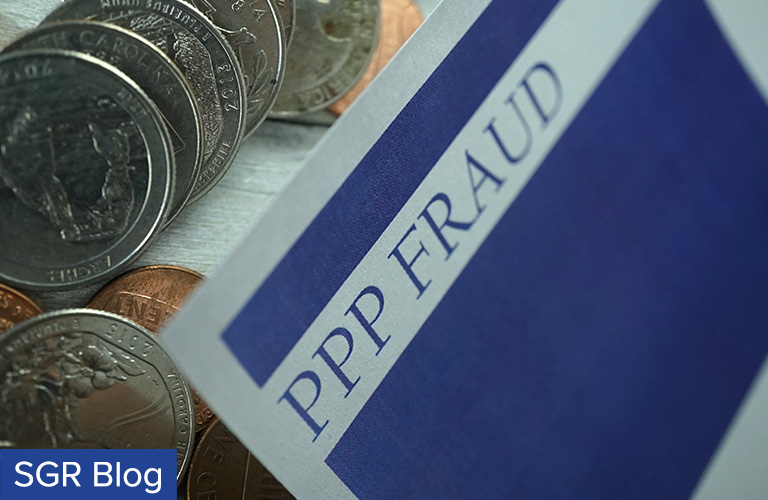
On January 12, 2021, the U.S. Department of Justice (DOJ) announced the first civil settlement to arise out of the Paycheck Protection Program (PPP). Internet retailer SlideBelts Inc. and its president and CEO, Brigham Taylor, have agreed to pay $100,000 in damages and penalties to resolve allegations that they obtained a $350,000 PPP loan by falsely representing to bank lenders when they applied for the forgivable loan that the company was not in bankruptcy, when in fact it was. The loan proceeds have already been repaid to the lender.
The PPP was part of the CARES Act passed in March of 2020 to provide relief from the economic fallout from the COVID-19 pandemic. Under the PPP, small businesses could apply for federal loans through the Small Business Administration (SBA) to be used for payroll and certain other expenses. The loans were forgivable, provided all requirements were met. One condition of qualifying for a PPP loan is that the business must not be in bankruptcy at the time it applies for the loan or at any time before the loan is disbursed.
SlideBelts filed for bankruptcy in August of 2019. According to the settlement agreement, beginning in April 2020, SlideBelts, through Taylor, filed PPP loan applications with two lenders. On each of the applications, SlideBelts answered no to Question 1 on the application as to whether it was in bankruptcy. Shortly after submitting the applications, a manager from Lender 1, a credit union in Sacramento, California, emailed Taylor to advise him that Taylor had answered Question 1 incorrectly, which the manager knew because the Lender was a creditor in SlideBelts’ then-pending bankruptcy proceeding. After further emails back and forth in which the manager made it clear that SlideBelts was not eligible for a loan under the PPP, Taylor acknowledged to the manager “that does make sense. All good.”
Taylor, however, was not deterred. On April 14, 2020, the same day he learned of Lender 1’s rejection, Taylor filed on SlideBelts’ behalf a third PPP loan application where he once again answered “no” to Question 1. Before Lender 3 could respond, Lender 2 approved SlideBelts’ loan application and, based on Taylor’s false statement that SlideBelts was not in bankruptcy, disbursed the funds. Taylor signed the note, knowing that Lender 2 would not have approved the loan and the SBA would not have guaranteed the loan if he had disclosed the bankruptcy. Further, Taylor and SlideBelts’ false statements caused Lender 2 to submit a false claim to the SBA for payment of $17,500 in loan processing fees.
On April 22, 2020, the day after the loan proceeds were disbursed, Taylor emailed Lender 2 that SlideBelts “just realized that we may not have answered [Question 1] correctly since we filled out the application quickly and wanted to bring it to your attention.” Motion practice ensued in the bankruptcy court, where SlideBelts first sought retroactive approval for the loan without disclosing to the court that it had obtained the loan by making a false statement, and then moved to have its case dismissed so that it could “apply for PPP funds while the case is dismissed.” Rather surprisingly, the bankruptcy court granted SlideBelts’ motion to dismiss its case, but ultimately, the DOJ prevailed, and, on July 8, 2020, over two months after obtaining the loan, SlideBelts returned $350,000 in proceeds to the lender.
Had they not settled, SlideBelts and Taylor could have faced claims under the Financial Institutions Reform, Recovery, and Enforcement Act, 12 U.S.C. § 1833a (FIRREA), based on false statements made in violation of 18 U.S.C. § 1014 and 15 U.S.C. § 645 (false statements to obtain money or property), as well as 18 U.S.C. § 1343 (wire fraud) and § 1344 (bank fraud). Also implicated was the False Claims Act, 31 U.S.C. §§ 3729-3733. Damages and penalties could have reached nearly $4.2 million.
This case was handled by the U.S. Attorney’s Office for the Eastern District of California and the SBA’s Office of Inspector General. It is a sign that the government is closely monitoring recipients of PPP loans and that fraud and other such shenanigans will not be tolerated.

